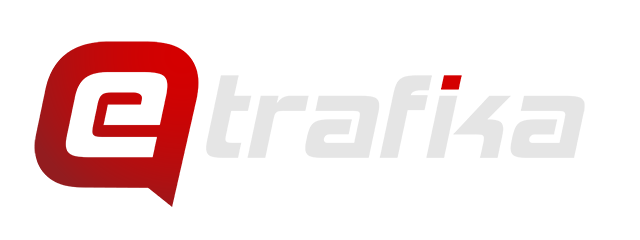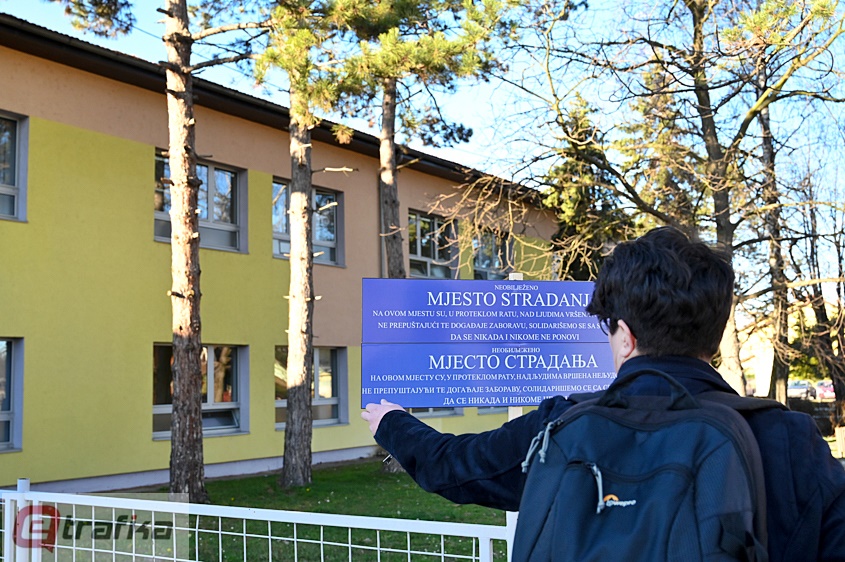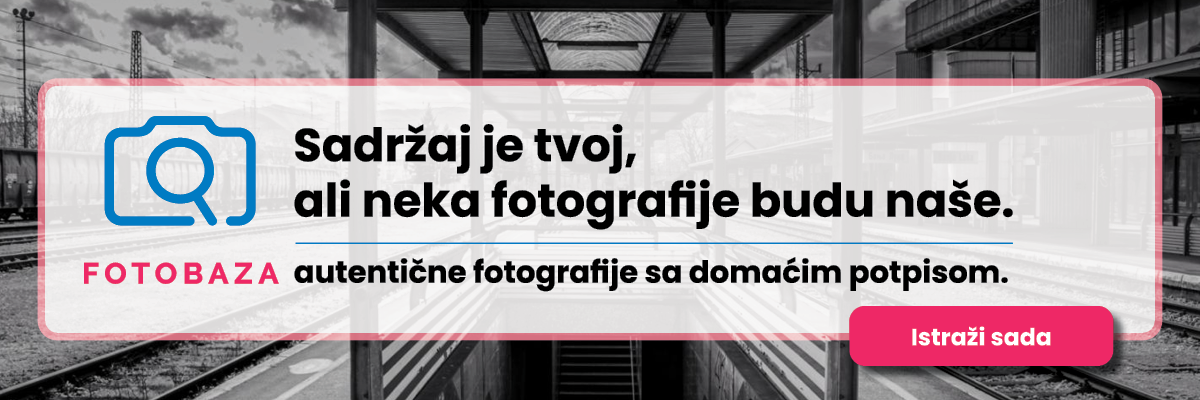Activists in Bosnia and Herzegovina are often a target of criticism and attacks by not only institutions, whose failings they highlight in their work, but also by their fellow citizens. The activists are people who spend their time and energy on solving the problems affecting not only them, but the wide community too, however, in that fight of theirs they often get rejected by the very same community.
Written by: Vanja Stokic; Photo and video: Ajdin Kamber
The reasons for this may be found in the fact that majority of BiH citizens are used to being silent and putting up with everything, therefore they perceive the one who disturbs this routine as yet another problem.
„I think there is a lot of anger. If we disagree with opinions of an activist, if see an activist as a problem and not as a solution, then naturally we will have certain resistance towards him because we get overwhelmed by negative emotions and we have a need to somehow communicate them, therefore we direct those emotions against that particular activist. It is quite often a problem that people who comment on the work of activists have no feeling that their comments might not be well-intentioned, because their criticism, instead of being constructive, is rather insulting and threatening. Additionally, they think that nobody has not asked them to express their opinion,” says Natasa Pivasevic, psychologist.
When exposed to such reactions of their fellow citizens, the activists react back. If the comments are negative, or sometimes violent, it is hard to stay calm and ignorant. Quite the opposite, this can lead to a more aggressive approach of activists to their fight.
„If I am attacked, my natural reaction back will be aggression, because aggression is a normal human response to something like this. The great thing is that activists will never, at least I have never seem that, threaten to kill any fellow citizens, while those who are on the other side often utter this threat”, she points out.
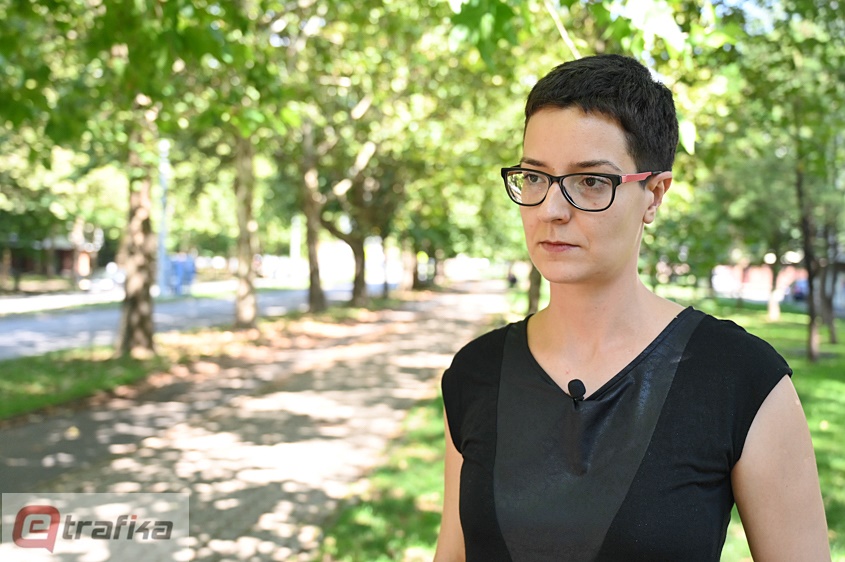
The engagement of activists may remind citizens of how passive they are, which then causes a lot of frustrations. Also, the citizens may find activists incompetent to deal with certain issues.
„There are some studies showing that when you present the same argument on a topic to a group of people, there will be different reactions depending on whether you say that this argument comes from an expert, or that this is an argument of an individual, passionate about the topic. This means that we still prefer to be told something by the authorities. And if I am only waiting for the authorities to tell me what to do, it means that I am taking away something from myself, that I have a lack of confidence in my power to act. I become angry then as I do not like feeling helpless”, she explains.
With so many bad things happening to them in the recent past, the BiH citizens have simply become silent. They accept not to protest so that they could at least remain safe. Because they are afraid to lose this minimum they still have.
„It is very difficult to stay motivated to pursue something if we feel bad. There are still so many speculations that people are deliberately kept under poor living conditions in order to prevent them from thinking about other problems”, says Natasa.
Working as an activist, Tamara Zrnovic moved to Sarajevo. The city she was born in and she fled from during the war. Prior to that, her activism engagement was in Bijeljina and Zvornik. Once she started to talk openly about various crimes and sufferings, she felt as if she were no longer welcome there.
„It was actually my views and opinions there were not welcome. Primarily not welcome among my acquaintances, among those who are close to me. Initially it was hard to accept this, it was difficult for me. I was very young back then, and it was a devastating feeling to be labelled as if I had betrayed a nation, a state, a country”, she recalls.
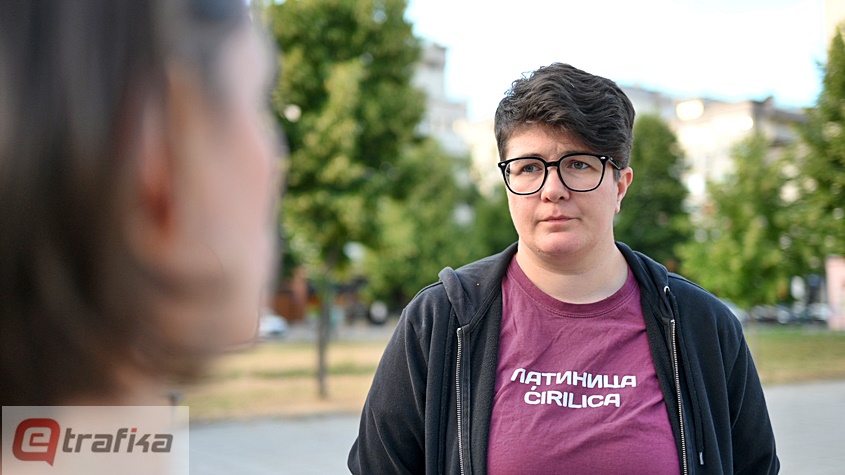
Over time, she learned how to communicate with such people, without having communication turn out into the conflict. Through her work and life in Sarajevo she is mainly meeting people who are doing the same work as she is. Peace and human rights activism, that is.
„And I started to get some warnings about limits as to how far I can go. Invisible borders as to what can be done and what can be discussed in Sarajevo, and what is not allowed. Regardless of whether it has anything to do with peace work or not. It was much easier for me to be a Serbian woman coming from Bijeljina and doing something in Sarajevo for one day, two, three or five days, than a Serbian woman living there and trying to do something. Two entirely different worlds. And I am not talking here about the institutions, politicians, ordinary people, I am talking about the people who I work with. Organisations, non-governmental ones, from Sarajevo. Peace activists. In that sense, Sarajevo is a closed community, there are certain things that are never discussed here and that you can never inquire about, there is a certain narrative and it cannot be questioned. Regardless of who comes here and who asks questions. Regardless of whether it is me or anybody else. However, I was born here in this city”, says Tamara.
An activist fighting for the rights of the LGBTIQ community, Lejla Huremovic, tells us that her life is constantly filled with fear that people around her might change opinion about her, because she speaks openly and does not want to close her eyes in front of the injustice. Luckily, this has not happened. She is getting support from her friends, co-workers, neighbours.
„While I was working for an activist organisation, I thought that the support was the result of the fact that we were all more or less the same. But now, when I am working for an international organisation, which is employing very different people, and when I am partaking in the organisation of the Pride Parade, I feel what true support means. I get days off to organise the Parade, they join me in the Parade, they ask me how I am doing. They are actively supporting me. I am truly happy and satisfied that I have managed to explain to people around me the significance of being an activist”, she points out.
Though her activism she has met new friends, like-minded people, who are aware what the activism entails. How dangerous and frustrating it can be. Who give her true support. But not only them.
„I have changed a lot of apartments in Sarajevo, and have lived in different parts of this city, but everywhere I lived I had neighbours who would notice me speaking on TV or being active in some event, and who, as I could see, supported me. They might not always tell me that, but would somehow show it without saying it directly”, she explains.
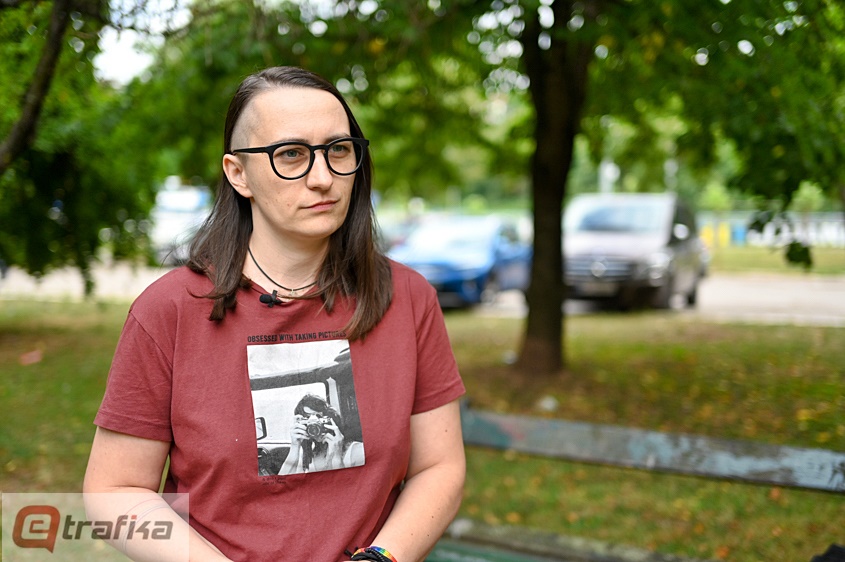
The type of activism, as well as the town where the activism takes place, affects the attitude of the community towards the activists. According to Lejla, it is not same thing to deal with the LGBTIQ issues in Banja Luka and in Sarajevo.
„Of course, for activists, it is of no major importance in terms of whether we will give up our activism, but these circumstances may slow down our fight and make it more difficult if we are active in the community which is not friendly to us”, she expresses her opinion.
Robert Oroz from Fojnica is known as the guardian of rivers. His environmental protection activism began in 2006, when it was announced that several small hydroelectric power plants (HEPP) were to be built on the Zeljeznica River. Led by the experience of people from the neighbouring towns, where the rivers were destroyed due to the HEPP construction, he decided to join the fight against this construction. His physical resistance began on the day when the excavators appeared on their river.
„We spent three months there, in a cave. We would come every single day, and would block the works. The workers would arrive, they would try to do their work, but we would make a line, holding each other by the hand, doing passive resistance. We did not allow for any works to be carried out. All the time we were insisting that the works be suspended until the end of the court proceedings, which we had initiated”, Robert recalls.
Their fight lasted for several years, and in 2012 they made a wooden cottage house, in order to protect themselves from bad weather. In the end they were fined for this, because the inspection authorities insisted on a building permit for this cottage house.
„On a daily basis, we were exposed to provocations, because the investors would send some people who would try to provoke us, cause an incident so that they could then get the police to assist them in the protection of their construction works. We were also pressured by the police forces, and in the police station misdemeanour reports were written against us on several occasions. There were even lawsuits by the investors, which were quite problematic, as the damage claims were seven-digit numbers worth. When you get a lawsuit and see it is for one million, you cannot be indifferent. Luckily, we managed to defend ourselves from all these lawsuits before the court, and as for misdemeanour reports, we paid for some, and for the rest we were acquitted by the court”, Robert adds.

About 1.200 persons were on guard for 325 days, non-stop. And this massiveness was their strongest weapons. As well as the solidarity of people from other municipalities, who would come to change the guard for one or two nights.
„A lot of people who worked, for example, for different governmental services, or some companies that were at the time close to the investor, did not dare to show up here, but they would do it secretly, or would find someone instead to come here and bring us some beer, juice, cheese, kaymak. There were also a lot of people from other places who gave us their support, for example from Kiseljak, Kresevo, and they would spend the night with us here, they would be on night duty so that we could rest, and they just wanted to see how we were doing, simply help us. Because it all lasted for too long and we were very exhausted”, he explains.
As a result of all these pressures, some people gave up the protest, whereas the defiance prevailed among the rest of them. After saving this river, Robert joined the fight for all the rivers in Bosnia and Herzegovina. He shared his experience, gave advice and offered physical help. Because he knows how much support has meant to him and to his fellow citizens.
„I am mostly proud of our fight and of everything we survived here in the Gotusa canyon, and I will have that feeling of pride for the rest of my life. But I am also proud of what the Coalition for the Protection of Rivers has done. In the end, we have managed to get an official document that eight concession contracts on the territory of Fojnica municipality have been terminated, that these small hydroelectric power plants are going to be excluded from the spatial plans, and now when we have a law according to which permissions for new concession contracts can no longer be issued, we can say that our rivers are free. We are confident that this was worth fighting for, that our fight made sense. Justice is often slow, very slow, but is reachable”, Robert highlights.
Due to activism work and as a result of confronting the ruling parties, his life changed dramatically. The worst pressures were existential blackmails.
“You can’t find the job, you can’t do normal things that are taken for granted by everybody else. And these normal things become unreachable for the Bosnian activists who confront the authorities. A number of persons who used to be active here, and were truly active from the very first until the very last day, were unfortunately forced to leave the country. And believe me, I miss them very much”, he says.
Ozren Perduv, a member of Justice for David movement, also noticed certain changes when it comes to the attitude of others towards him as a result of his public exposure and his activism. As for his fight, it was not a matter of changing the behaviour of people only, but of institutions and media too.
“The media and the authorities have done their dishonourable task when they labelled us all as the destroyers of the Republic of Srpska. And whoever mentions publically certain influential persons, which we still do, he is immediately accused of working against the RS. And so the media created an image of us as if we were working against the Republic of Srpska, therefore through my relationships with other people, with my community, with those who I considered friends, I realised that they fell for that story, although they never told me that openly. At some point they started believing in this distorted image of me, not saying anything directly, but slowly distancing themselves from me. Not only from me, but from many others who have gone through a similar situation”, says Ozren.
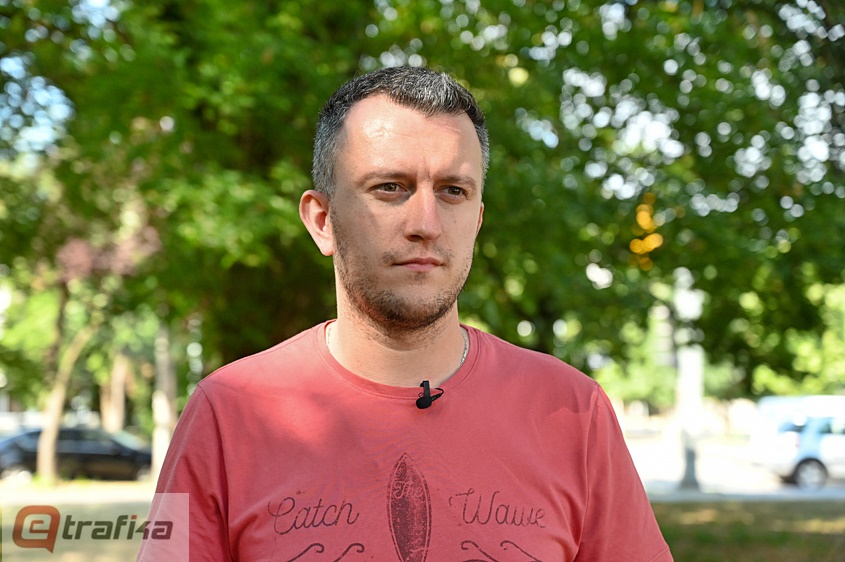
It just happened that some people simply turned their back on him, just stopped communicating with him. Without any explanation. Because he was out protesting, he got arrested several times. What hurt him the most was that those he considered friends stopped calling him, did not even try to check if he was all right.
“I had a colleague whom I used to drive to work every day until that unfortunate December, and we were OK friends. Every day, he would go with me to work, but then 25 December happened, and I got arrested. From that day, that friend of mine never called me again. And it is just one example of what I have experienced”, he explains.
For him the worst thing was that people gave their trust to the lies presented to them by the institutions and media, without asking him to explain himself. Nevertheless, this fight helped him make new friends, who are sharing the same problems, and in that sense are giving him their true support.

